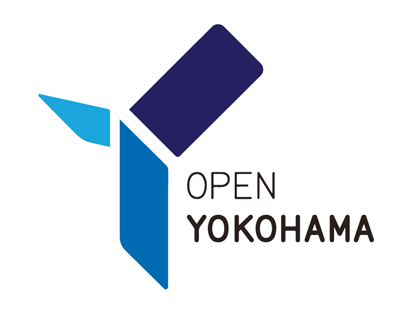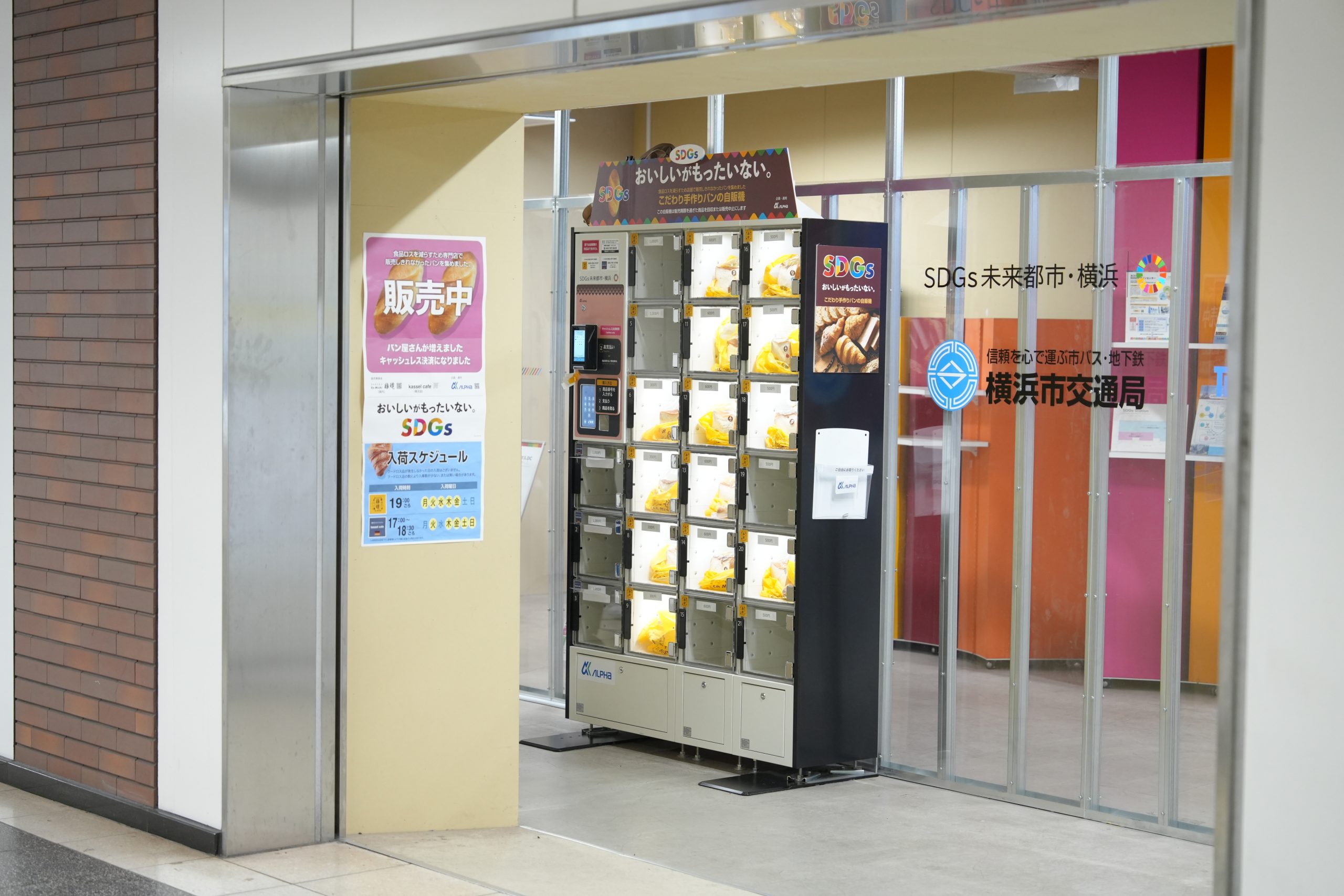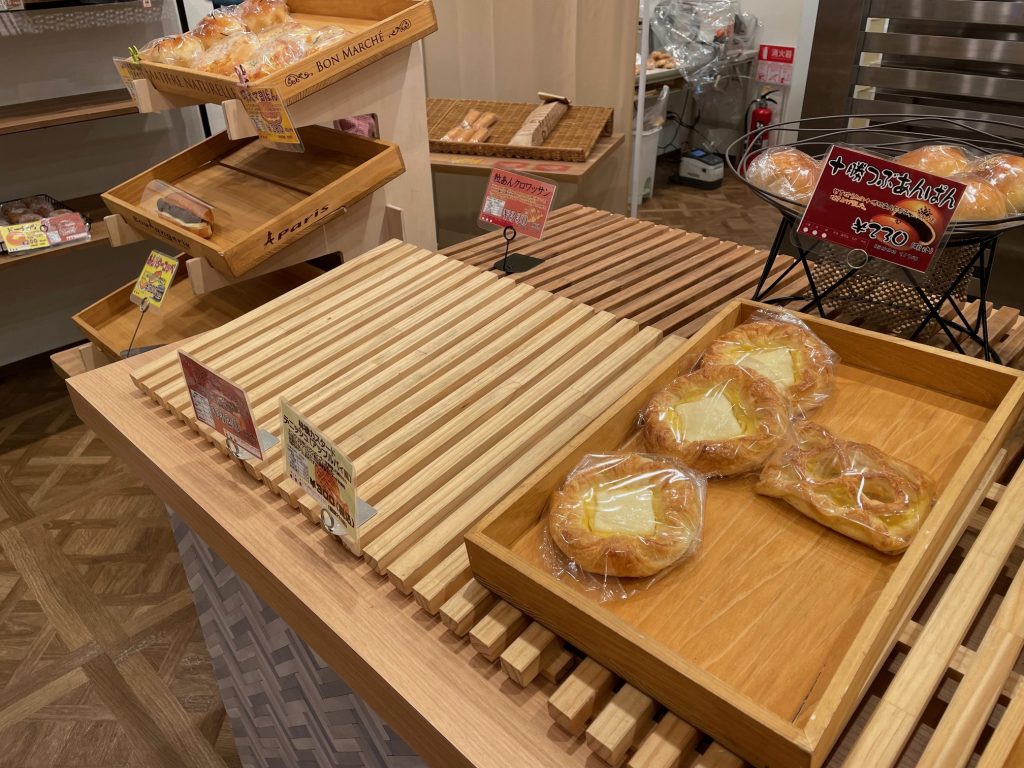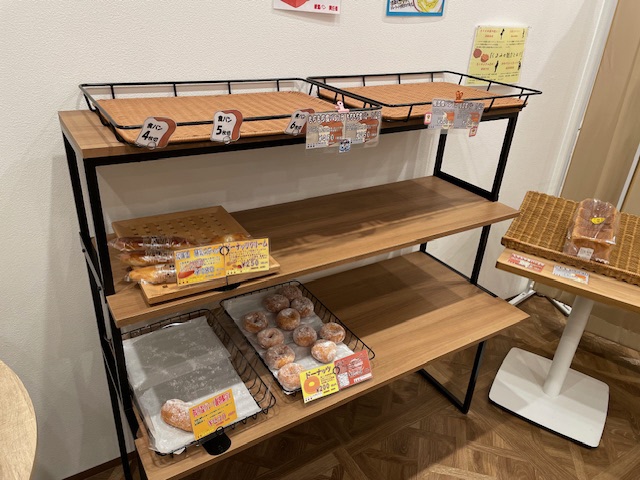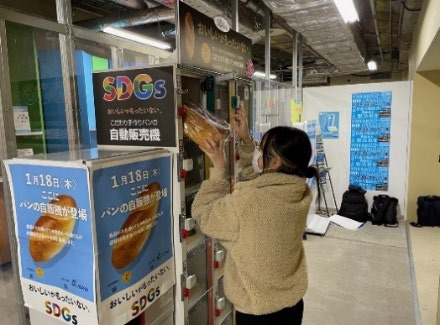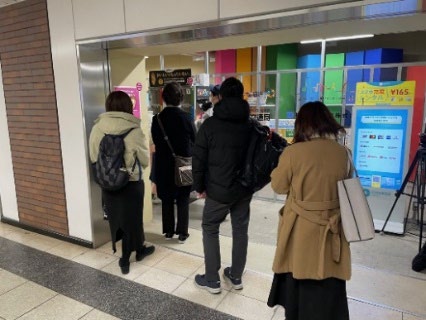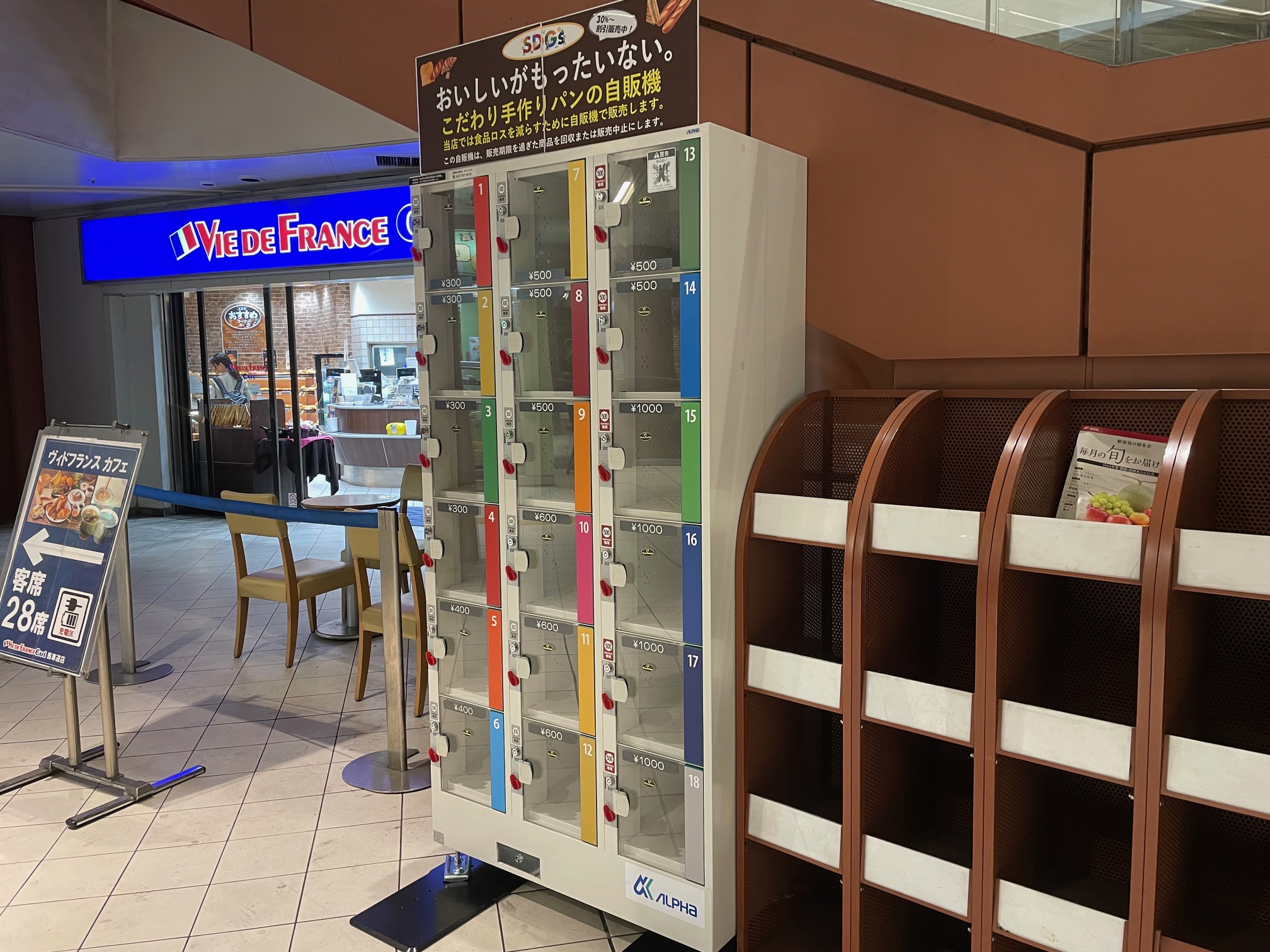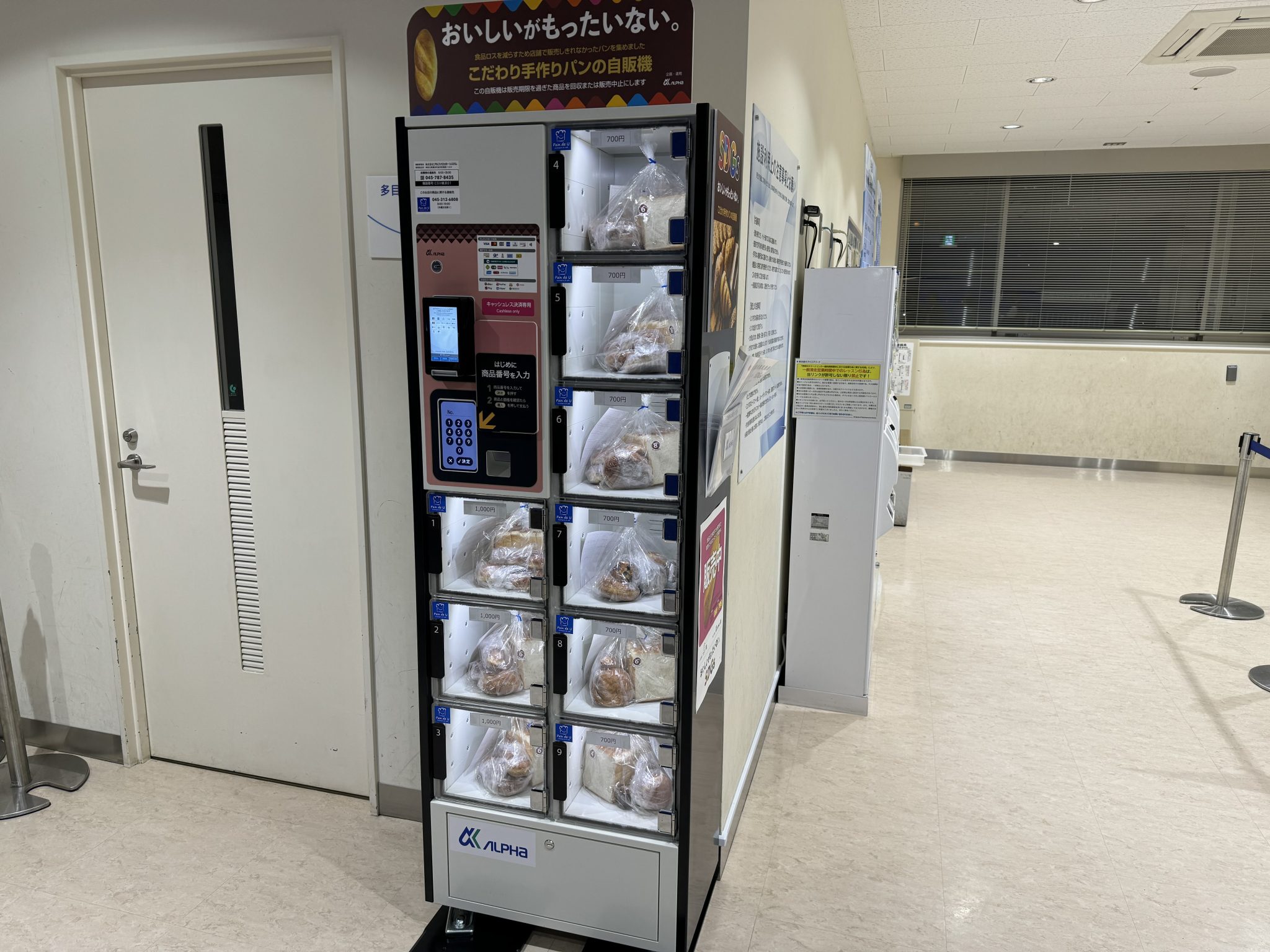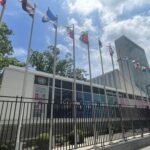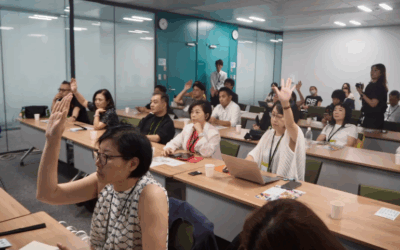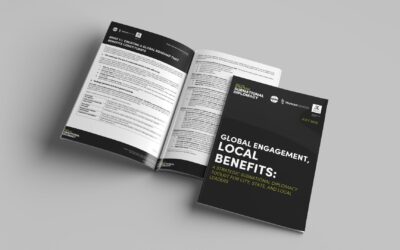Japan is famous globally for its many vending machines, but a new project from the City of Yokohama is aiming to tackle the issue of food waste through a new type of locker-style vending machine installed in key places throughout the city that serves leftover, unsold food at a discount. These Yokohama “Food Loss Reduction SDGs Locker” vending machines, named in reference to the UN’s Sustainable Development Goals (SDGs), are a shining example of how local governments can work with private businesses to reduce food waste, local hunger, and carbon emissions.
According to the UNEP, one third of the world’s population is facing food insecurity, while at the same time, one-fifth of all food for human consumption is thrown out or wasted every day. As one attempt to tackle this issue of “food loss,” Yokohama City partnered with a local locker company to create a locker-style vending machine that allows vendors to sell their unsold food that is still within the best before date or expiration date every day. These lockers offer a 20-30% discount in a high-traffic area on food that otherwise would have been disposed of. Purchases at the vending machine can be conveniently made via credit card, IC transportation card, or QR code.
The pilot for this project was launched in the Kannai train station in Yokohama in January 2024, in collaboration with a nearby bakery. Bread was chosen as the first trial product for the vending machine because it a popular product in Japan that has a short shelf life, can be stored at room temperature, and is discarded in large quantities daily by bakeries. By utilizing a vending machine system, customers can purchase bread at a later time that might be more convenient to them, and actively participate in reducing food waste while acquiring a staple item like bread at a lower price.
“Bakeries experience food loss every day,” explained Toshiaki Fujii, Manager of Bakery Enmichi, the first bakery that participated in the program, “We used to fill two 45-liter garbage bags with unsold bread, but now, we only use one bag. And we have a lot of new customers; some who went to the locker but couldn’t buy bread due to everything being sold out, and some who tried the bread and wanted to buy more. Another good thing that has happened is some of our staff are able to finish one hour earlier. Once they fill up the locker with the day’s unsold bread, they can go straight home. All our staff are enjoying this system.”
The goal of the project is to reduce food waste by a total of 30 tons and CO2 emissions by 120 tons annually, and so far, the project has shown great results toward these goals: already between January and August of 2024, an estimated 2.3 tons of bread has been saved from being thrown out, and an estimated 9 tons of CO2 emission has been avoided. CO2 emission reduction estimates are based on calculations from the emission intensity of bread production including supply chains. All of the bread in the Kannai Station locker regularly sold out within a few hours every day.
Due to the success of the pilot vending machine, a second Food Loss Reduction SDGs Locker was installed at the Yokohama Bank Ice Arena in April 2024, and a third near the ticket gates of Bashamichi Station in May 2024, and there are plans in motion to expand the locations of these lockers even further within the city. “[These lockers] have gained so much attention that we received many inquiries from companies and local government around Japan,” said Yuka Sasaki, Manager for SDGs Future City Promotion Division of Yokohama City. Since July 2024, the City of Yokohama has gathering applications from providers of potential installation locations and food vendors to find new locations to install these vending machines.
“At the moment, we are only partnering with bakeries,” commented Shozo Miki, General Manager for the Sales and Marketing Department at Alpha Locker System, the Yokohama-based company partnering with the city to install the vending machines, “but in the future, we hope to expand to include more than just bread.” Out-of-spec vegetables and baked goods with damaged or broken packaging are current contenders to be included in the project in the very near future, and if refrigerated or frozen vending machine manufacturers enter the market, the possible range of products sold in these vending machines could increase dramatically. Due to the current room temperature locker style of these vending machines and the heat and humidity of Japanese summers, great care is being taken to avoid food spoiling in the lockers, so new products will be tested carefully and systems to limit sales time are already being installed.
Yokohama City is the first city in Japan to run this kind of food waste reduction program via a vending machine, and is expecting even more success as the “SDGs Locker” vending machine program is poised to expand these machines throughout the entire city.
More Information:
Video: Yokohama City’s new “SDGs Locker” Vending Machines are reducing food waste and CO2 emissions
